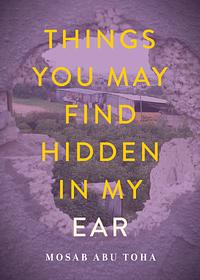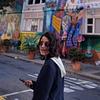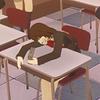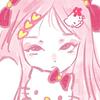Take a photo of a barcode or cover
reflective
sad
emotional
informative
reflective
sad
fast-paced
emotional
reflective
fast-paced
And if you can make them cry or smile, then you are a poet; if you can make them shiver, then you are a poet.
A truly beautiful and haunting collection of poetry, so weighted by grief and the horror of the ongoing genocide in Palestine. There is very little that I feel equipped to say - art created from the devastation is deeply important and contains so much.
A truly beautiful and haunting collection of poetry, so weighted by grief and the horror of the ongoing genocide in Palestine. There is very little that I feel equipped to say - art created from the devastation is deeply important and contains so much.
informative
reflective
sad
medium-paced
„Gaza is a city where tourists gather to take photos next to destroyed buildings or graveyards.
A country that exists only in my mind. Its flag has no room to fly freely, but there is space on the coffins of my countrymen.“
A country that exists only in my mind. Its flag has no room to fly freely, but there is space on the coffins of my countrymen.“
emotional
sad
medium-paced
challenging
dark
emotional
hopeful
informative
inspiring
reflective
sad
tense
medium-paced
emotional
informative
reflective
sad
tense
medium-paced
emotional
hopeful
informative
inspiring
reflective
sad
fast-paced
“On TV, I watched when a man pulled out a headless child,
another with no arm or leg. So small
I couldn’t tell if boy or girl.
Hate ignores such details.
The houses were not Hamas.
The kids were not Hamas.
Their clothes and toys were not Hamas.
The neighborhood was not Hamas.
The air was not Hamas.
Our ears were not Hamas.
Our eyes were not Hamas.
The one who ordered the killing,
the one who pressed the button thought
only of Hamas.”
- from "THE WOUNDS"
author: Mosab Abu Toha
published: 2022
publisher: City Lights Publishers
genre/subgenre: poetry
setting: Palestine
main themes/subjects: life persists, family & heritage as tied to the land, the mundanity of violence, the many layers of isolation inherent in the Palestinian identity, the indefatigability of hope, the insidiousness of normalized colonization & gen/cide, the rejuvenative power of small moments & nature, memory & stories, fatherhood, childhood, death & burial, walls & the sky, freedom
representation: Indigenous author
“What do you think happens to people who cannot find a way to process and express what has happened to them?
It means that what they have lived through will not leave them, so it will all come back to them in their nightmares. One function of poetry is to heal the wounds. These ideas in my mind, I don’t really know what they are until I put them on paper.
People who are unable to go through this process, of getting rid of things, transferring or transforming them, lose their mental well-being, their psychological balance. If they can’t write, or deal with their nightmares by reading, by putting them on paper, or somehow sharing their feelings with other people, this deepens the wounds.”
my thoughts:
What a powerful & engaging collection. I was moved by how conceivable & evocative Abu Toha’s tone & style were in spite of the extreme horror & distance of the subjectmatter. Though to be fair I did just softly cry through the whole book. After such poems as “My Grandfather Was A Terrorist” & “Sobbing Without Sound” I had to just stop & cry it out until I could move on to the next poem. It’s the good kind of crying though, the kind of crying that lets you know your soul is alive & well. In that sense, part of me is glad that I will never understand how anyone could read a collection like this & not be moved to empathy & action. To sit with Abu Toha’s story, to take his words into my soul, to become “Palestinian like him”, I am grateful even through the grief.
notable elements: at the end of the collection is a brief interview between Ammiel Alcalay & Abu Toha & what Abu Toha said about his poetry & the act of writing poetry really resonated with me:
“I never tried to master the classical structures of writing poetry. When I think of poetry I don’t think of Arabic poetry or English poetry or Spanish poetry. No, I just think of poetry as an idea, not as rigid form that I need to follow.”
“The word for poetry in Arabic, sha’ir, doesn’t refer to a particular form, it only has to do with feeling. So you have to be an expert in showing your feelings on paper or reciting your poetry to people so that they can feel what you’re feeling. It can be an image but it does have to leave an impact on the reader. And if you can make them cry or smile, then you are a poet; if you can make them shiver, then you are a poet.”
“When you are a poet, you need to be saying something that cannot be said by other people. Poets don’t necessarily need to be first-rate readers of poetry, because when they start to write poems they already have what they need, they’ve been living it. When I tell my story—to anyone—it’s as if I’m reciting poetry.”
i would recommend this book to readers who maybe don’t usually read poetry but would like to add some to their repertoire & support an Indigenous Palestinian poet while they do so. this book is best read gently, compassionately, selflessly, expansively…
“A ROSE SHOULDERS UP
Don’t ever be surprised
to see a rose shoulder up
among the ruins of the house:
This is how we survived.”
final note: I immediately picked up Abu Toha’s most recent work, Forest of Noise, after finishing this one & am already struck by how much more there is to say about the Palestinian experience under occupation, oppression, & ςεηsοr. 💔
CW // gen/cide, dεατh (especially of children), indiscriminate b0mbing, isolation & displacement
season: Summer
music pairing: Sounds of Palestine playlist on Spotify
further reading:
- FOREST OF NOISE by Mosab Abu Toha (2024)
- Mahmoud Darwish
- YOU CAN BE THE LAST LEAF by Maya Abu Al-Hayyat (2022) ★ ★ ★ ★ ★
- DEAR GOD, DEAR BONES, DEAR YELLOW by Noor Hindi (2022)
- IF I MUST DIE: Poetry and Prose, by Refaat Alareer (2024)
- PALESTINIAN WALKS by Raja Shehadeh (2007) ★ ★ ★ ★ ★
- A REBEL IN GAZA: A Daughter in Rafah Speaks, by Asmaa Alghoul & Sélim Nassib (2024)
- SALT HOUSES by Hala Alyan (2017) ★ ★ ★ ★ .75
- THE MIND-BODY PROBLEM by Katha Pollitt (2009)
- Check out more books by Palestinian authors here.
Click on the star ratings beside the titles I’ve read to read my reviews/thoughts about the book.
I earn commissions from the sponsored links to my shop on bookshop.org which allow me to keep the majority of my content like Book Reviews & Reading Lists free to all subscribers. <3
“Through it all, the strawberries have never stopped growing.”
Check out my review on StopAndSmellTheBooks.com for more of my favorite quotes, notes, & annotations.
definitely a must read book if you wanna know more abt palestine, these poems are beautiful but they all left me wrecked







